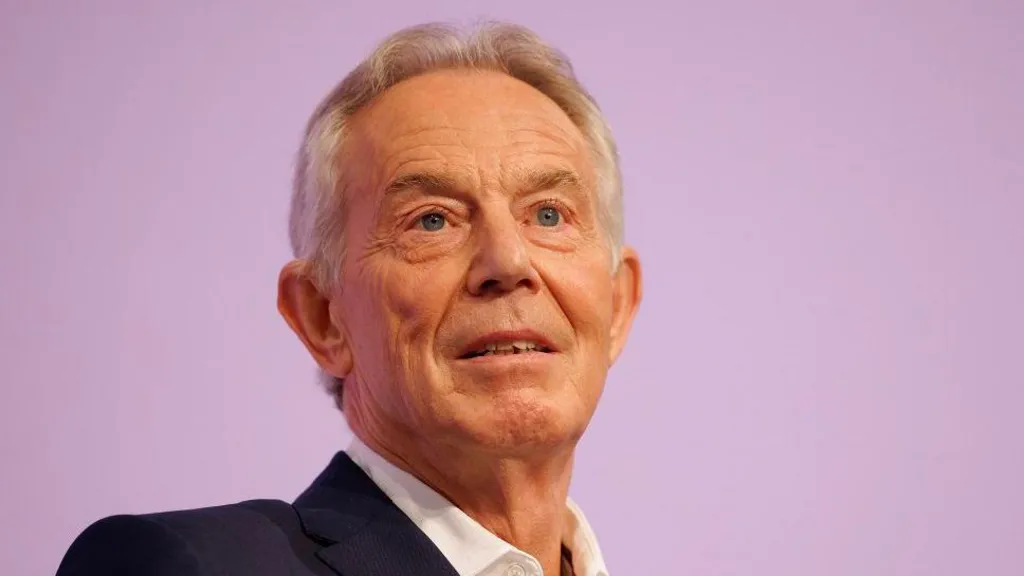The government has defended its net-zero policies after Sir Tony Blair said limiting fossil fuels was "doomed to fail" and a new approach was needed.
The ex-Labour prime minister argued the climate change debate had become "irrational" and people in rich countries no longer wanted to make financial sacrifices "when they know that their impact on global emissions is minimal".
His comments have been seized on by opposition parties as an attack on Sir Keir Starmer's plan to achieve net zero carbon emissions in the UK by 2050.
Asked about the comments at Prime Minister's Questions, Sir Keir said: "If you look at the detail of what Tony Blair said he's absolutely aligned with what we're doing here."
Labour ministers have insisted the drive to net zero will not involve any financial sacrifices and have minimal impact on people's lives.
Minutes before PMQs, the Tony Blair Institute (TBI) issued a statement saying they "support the government's 2050 net zero targets" and that the UK government's approach is "the right one".
Questioned whether the institute had been asked by the government to issue a clarification to help defuse a growing political row, the prime minister's spokesman said: "I won't get into private conversations."
Sir Keir's spokesman also stressed that the PM had confidence in Energy Secretary Ed Miliband, adding that he was "doing a great job".
But he said the PM did not agree with Sir Tony that there was too much "hysteria" in the climate change debate.
He told reporters: "I don't think so, I mean I think we're taking a very practical and pragmatic approach to this here in the UK."
He added: "Our approach to net zero is clear. It is families up and down this country that will pay the price for the UK's dependence on fossil fuel markets."
Nicholas Stern – who wrote an influential report on the economics of climate change for Tony Blair when he was in government in 2006 – described the report from the Tony Blair Institute as "muddled and misleading".
He said there was "far more progress being made around the world to decarbonise the global economy than it suggests" and that it did not take account of the UK's leadership in the field.
"If the UK wobbles on its route to net zero, other countries may become less committed. The UK matters," said Prof Stern, who chairs the Grantham Research institute on climate change at the London School of Economics.
The TBI report argues that the expected global rise in fossil fuel use and the doubling of airline travel over the next 20 years undermines current climate policies.
"These are the inconvenient facts, which mean that any strategy based on either 'phasing out' fossil fuels in the short term or limiting consumption is a strategy doomed to fail," Sir Tony wrote in the foreward to the report.
The report says existing carbon targets should be kept in place to give certainty to business but a rethink of how they are achieved was urgently needed.
It says the focus should instead be on emerging technologies such as carbon capture and storage and nuclear fusion – and new international efforts to persuade the world's biggest economies, such as China and India, to cut their emissions.
To help achieve the 2050 target, Labour and the previous Conservative government made a series of pledges including "clean" electricity, ending the sale of petrol and diesel cars by 2030 – and installing 600,000 electric heat pumps a year by 2028.
